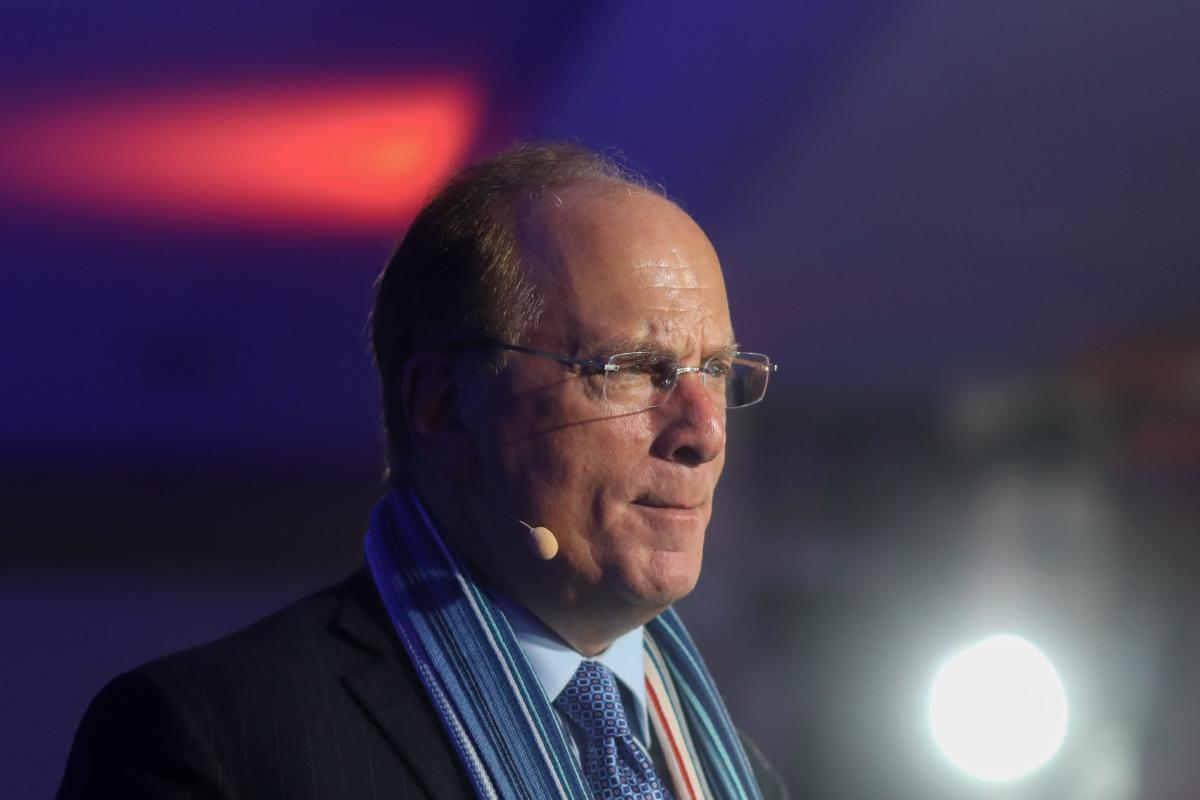Katherine Dunn
December 7, 2021
BlackRock and its chief executive, Larry Fink, made waves two years ago when he pledged to put climate change at the center of the firm’s investment strategy—and a year later, told CEOs to get serious on net-zero targets or face the consequences. Now, the financial giant is leading an investor group taking a large minority stake in Saudi Aramco’s gas pipeline network—and sees no contradiction.
The investor group, led by BlackRock Real Assets and Hassana Investment Co., the investment management arm of the Saudi government’s social insurance body, will take a 49% stake in the newly formed subsidiary, Aramco Gas Pipelines Co., under a 20-year leasing deal.
Saudi Aramco, the Saudi state oil and gas giant, will retain the other 51% and receive $15.5 billion, making this one of the world’s largest ever energy infrastructure deals, Aramco said in a release late Monday. The deal does not put any gas production limits on the company, Aramco added.
BlackRock did not put out a release on the deal, and no further financing details were available. But Larry Fink, BlackRock’s CEO, framed the deal as fitting squarely within his own pledge to put climate at the center of the asset manager’s investments.
“Aramco and Saudi Arabia are taking meaningful, forward-looking steps to transition the Saudi economy toward renewables, clean hydrogen, and a net-zero future. Responsibly managed natural gas infrastructure has a meaningful role to play in this transition,” Fink said in the Aramco release.
The deal comes at an unusual time for the global energy markets, which are now under such intense strain from high demand and low winter temperatures that U.S. President Biden spent months urging OPEC, including Saudi Arabia, to increase production in order to lessen the pressure on American consumers. Meanwhile, gas prices in Europe have risen so high that they are threatening fertilizer production and, therefore, food production.
But long term, the deal goes to the heart of a controversial debate over the
role of gas in the energy transition. Some countries and governments, particularly oil and gas giants, see natural gas—which is cleaner burning in terms of CO2 compared with coal and oil—as a critical bridge in the energy transition. Indeed, emissions reductions in U.S. power generation between 2005 and 2019 have largely been the result of electricity production switching from coal to gas, according to the U.S. Energy Information Administration (EIA).
Others see the idea of gas as a “transitional fuel” as a contradiction in terms, given its high methane emissions and given that large-scale energy infrastructure investments made now won’t be in operation for many years before 2050, when Paris Agreement signatories like Saudi Arabia have pledged to reach net-zero emissions. They argue that investment should go straight into building up the capacity of renewable energy, which is now the cheapest source of energy in much of the world.
BlackRock, for its part, does not see a contradiction between investing in gas infrastructure and its own climate goals, said a person familiar with the matter, noting that the lease expires in the early 2040s, before Aramco’s own 2050 target, and that the deal will help Saudi Arabia transition its own power capacity from oil to gas, and eventually to hydrogen. One of the expected benefits of hydrogen as an energy source is that it can be transported using retrofitted gas infrastructure.
Saudi Arabia also has its own climate goals, that person said. Saudi Aramco is targeting net-zero operational emissions by 2050, while Saudi Arabia announced in October ahead of the COP26 climate conference that it will target net-zero emissions by 2060.
..................................................................................

 finance.yahoo.com
finance.yahoo.com
December 7, 2021
BlackRock and its chief executive, Larry Fink, made waves two years ago when he pledged to put climate change at the center of the firm’s investment strategy—and a year later, told CEOs to get serious on net-zero targets or face the consequences. Now, the financial giant is leading an investor group taking a large minority stake in Saudi Aramco’s gas pipeline network—and sees no contradiction.
The investor group, led by BlackRock Real Assets and Hassana Investment Co., the investment management arm of the Saudi government’s social insurance body, will take a 49% stake in the newly formed subsidiary, Aramco Gas Pipelines Co., under a 20-year leasing deal.
Saudi Aramco, the Saudi state oil and gas giant, will retain the other 51% and receive $15.5 billion, making this one of the world’s largest ever energy infrastructure deals, Aramco said in a release late Monday. The deal does not put any gas production limits on the company, Aramco added.
BlackRock did not put out a release on the deal, and no further financing details were available. But Larry Fink, BlackRock’s CEO, framed the deal as fitting squarely within his own pledge to put climate at the center of the asset manager’s investments.
“Aramco and Saudi Arabia are taking meaningful, forward-looking steps to transition the Saudi economy toward renewables, clean hydrogen, and a net-zero future. Responsibly managed natural gas infrastructure has a meaningful role to play in this transition,” Fink said in the Aramco release.
The deal comes at an unusual time for the global energy markets, which are now under such intense strain from high demand and low winter temperatures that U.S. President Biden spent months urging OPEC, including Saudi Arabia, to increase production in order to lessen the pressure on American consumers. Meanwhile, gas prices in Europe have risen so high that they are threatening fertilizer production and, therefore, food production.
But long term, the deal goes to the heart of a controversial debate over the
role of gas in the energy transition. Some countries and governments, particularly oil and gas giants, see natural gas—which is cleaner burning in terms of CO2 compared with coal and oil—as a critical bridge in the energy transition. Indeed, emissions reductions in U.S. power generation between 2005 and 2019 have largely been the result of electricity production switching from coal to gas, according to the U.S. Energy Information Administration (EIA).
Others see the idea of gas as a “transitional fuel” as a contradiction in terms, given its high methane emissions and given that large-scale energy infrastructure investments made now won’t be in operation for many years before 2050, when Paris Agreement signatories like Saudi Arabia have pledged to reach net-zero emissions. They argue that investment should go straight into building up the capacity of renewable energy, which is now the cheapest source of energy in much of the world.
BlackRock, for its part, does not see a contradiction between investing in gas infrastructure and its own climate goals, said a person familiar with the matter, noting that the lease expires in the early 2040s, before Aramco’s own 2050 target, and that the deal will help Saudi Arabia transition its own power capacity from oil to gas, and eventually to hydrogen. One of the expected benefits of hydrogen as an energy source is that it can be transported using retrofitted gas infrastructure.
Saudi Arabia also has its own climate goals, that person said. Saudi Aramco is targeting net-zero operational emissions by 2050, while Saudi Arabia announced in October ahead of the COP26 climate conference that it will target net-zero emissions by 2060.
..................................................................................

BlackRock finds there’s room for a $15.5 billion Aramco gas pipeline in its climate pledge
The asset manager has taken a clear stance in favor of gas as a transitional fuel—even if not everyone agrees.








